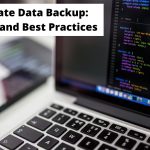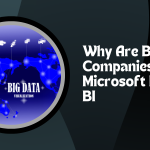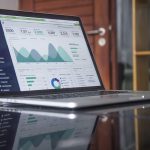As data continues to grow exponentially, the responsibility of protecting it becomes more challenging. According to Statista, cyber incidents such as ransomware and IT failures are the leading threats facing businesses all around the world in 2022. Other prevalent risks like natural catastrophes and regulation changes also cost organizations millions of dollars and could even … [Read more...] about Corporate Data Backup: Benefits and Best Practices
Big Data
Learn everything you need to know about big data. Find out how companies are using this revolutionary technology and what it means for your business strategy.
Why Are Big Companies Using Microsoft Power BI
The evolution of technology and the web has cast a deep impact on the business landscape across the world. Nowadays, businesses are relying a lot on digital technologies and numerous online tools to cater to customer needs better and stay ahead in the race. Regardless of the sector, businesses need to deal with large amounts of data. Analysis and processing of data have become … [Read more...] about Why Are Big Companies Using Microsoft Power BI
Top 5 Reasons Why Data Governance Programs Fail
Data governance can ensure quality, prevent compliance issues, and deliver better business results. Conversely, poor data hygiene can damage a business in today's data-driven world. Unfortunately, some enterprises are failing with their data governance programs. Why does this happen? Let's explore the top five reasons and areas that can impact your data governance program and … [Read more...] about Top 5 Reasons Why Data Governance Programs Fail
Data Socialization Next Big Things in Data Analytics
Social Media has the fastest rate of data creation. Every second, immeasurable traffic is maintained by the community platforms. Now, this is a great source of personal data for companies. Thus, we discuss the concept of data socialization in this article. Also, we are going to see some practical implications of social data. Data Socialization is Valuable for Marketing … [Read more...] about Data Socialization Next Big Things in Data Analytics
7 Ways Companies Can Predict Consumer Behaviours
Can you predict how many units you'll sell each day? You might get close but never be exact in your prediction. The same goes for predicting consumer behaviour. You can have many assumptions, but it never means you'll always be right! However, what you can do is plan and predict demand over the course of a year. New product developments need to always closely monitor people's … [Read more...] about 7 Ways Companies Can Predict Consumer Behaviours
What is big data?
Big data is a term that refers to the massive amount of digital data created and shared every day. Big data can transform how we live, work, and communicate. It can be used to improve everything from public health and urban planning to business and marketing.
Big data is also changing the way we think about privacy and security. The volume, velocity, and variety of big data present challenges and opportunities for organizations and individuals. Regardless, big data is here to stay, and its impact will only continue to grow in the years to come.
What is big data analytics?
Big data analytics is the process of turning large, complex data sets into actionable insights. Businesses use various analytical tools and techniques, including machine learning and statistical analysis, to do this.
Big data analytics can be used to improve decision-making in areas like marketing, operations, and customer service. It can also be used to identify new business opportunities and optimize existing processes. With the help of big data analysis, businesses can gain a competitive edge by using their data better.
Want to learn more about big data? Datafloq has courses available. Contact us to get started.
When was big data introduced?
The term big data was coined in the 1990s, with some giving credit to John Mashey for popularizing the term. However, the concept of big data has been around for much longer.
Where does big data come from?
In the early days of computing, scientists and businesses began to realize that the amount of data being generated was increasing exponentially. As a result, they began to develop new methods for storing and processing data.
Over time, these methods have become increasingly sophisticated and have played a key role in enabling businesses to make sense of vast amounts of information. Today, big data is used in various industries, from retail to healthcare, and its importance is only likely to grow in the years to come.
What are examples of big data?
One of the most common examples of big data is social media data. With over 2 billion active users, Facebook generates a huge amount of data every day. This includes information on user interactions, posts, and even location data. Analyzing this data can help companies better understand their customers and target their marketing efforts.
Another example of big data is GPS signals. These signals are constantly being generated by devices like cell phones and fitness trackers. When combined with other data sets, GPS signals can be used to provide insights into everything from traffic patterns to human behavior. Finally, weather patterns are another type of big data set. By tracking these patterns over time, scientists can better understand the impact of climate change and develop strategies for mitigating its effects.
How do companies use big data?
Companies use big data in marketing, product development, and customer service. By analyzing large data sets, businesses can identify patterns and trends that would be otherwise difficult to spot. For example, a company might use big data to track customer behavior patterns to improve its marketing efforts.
Alternatively, a company might use big data to improve its products by identifying areas where customers are most likely to experience problems. For instance, big data can be used to improve customer service by finding pain points in the customer journey. Ultimately, big data provides companies with a valuable tool for gaining insights into their business operations.







